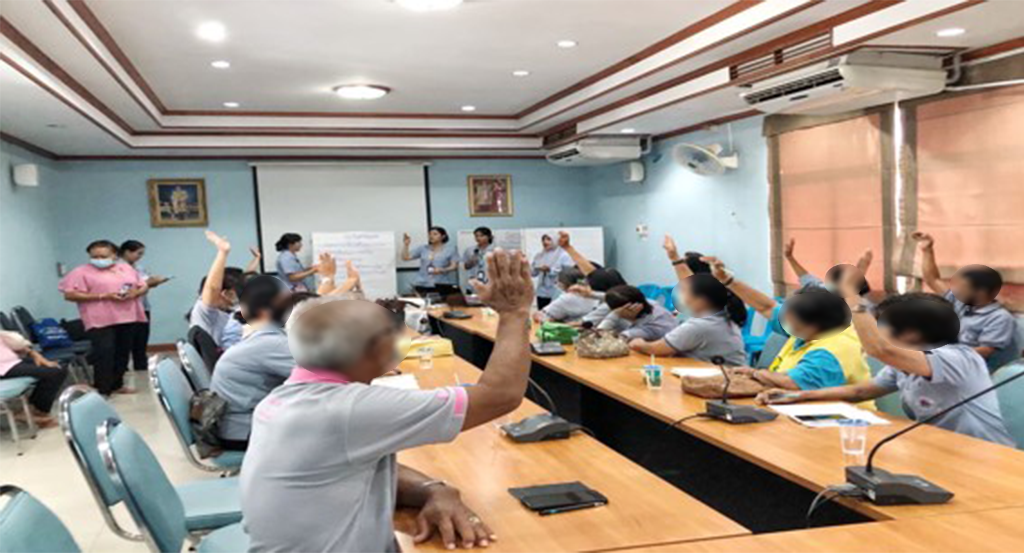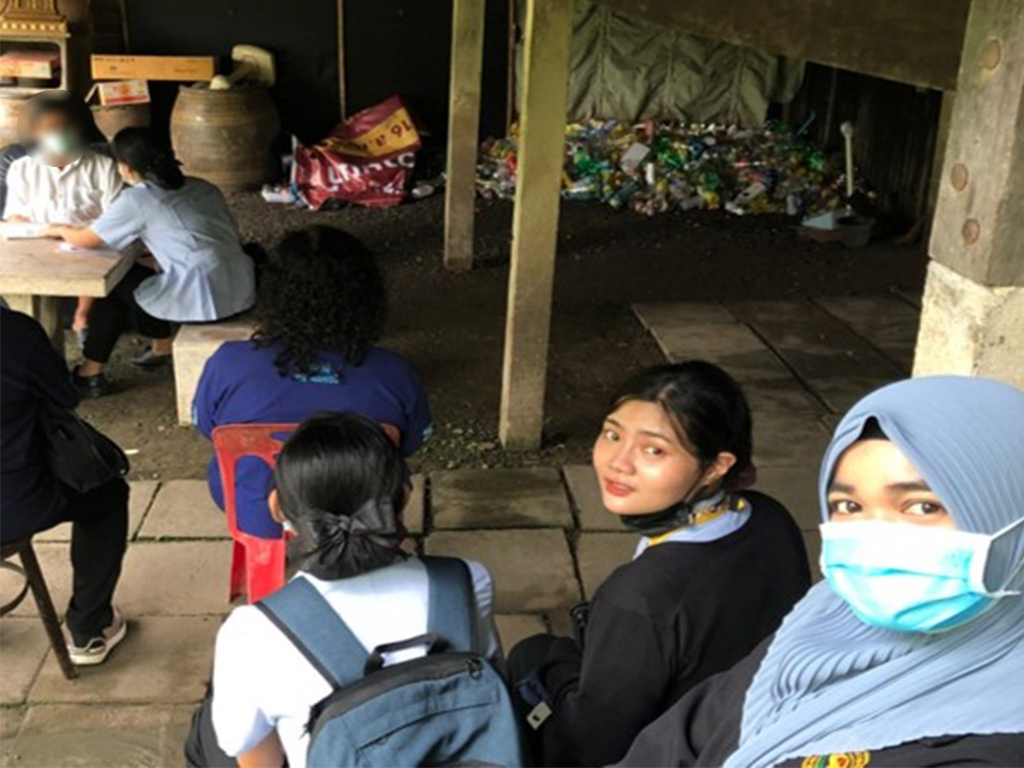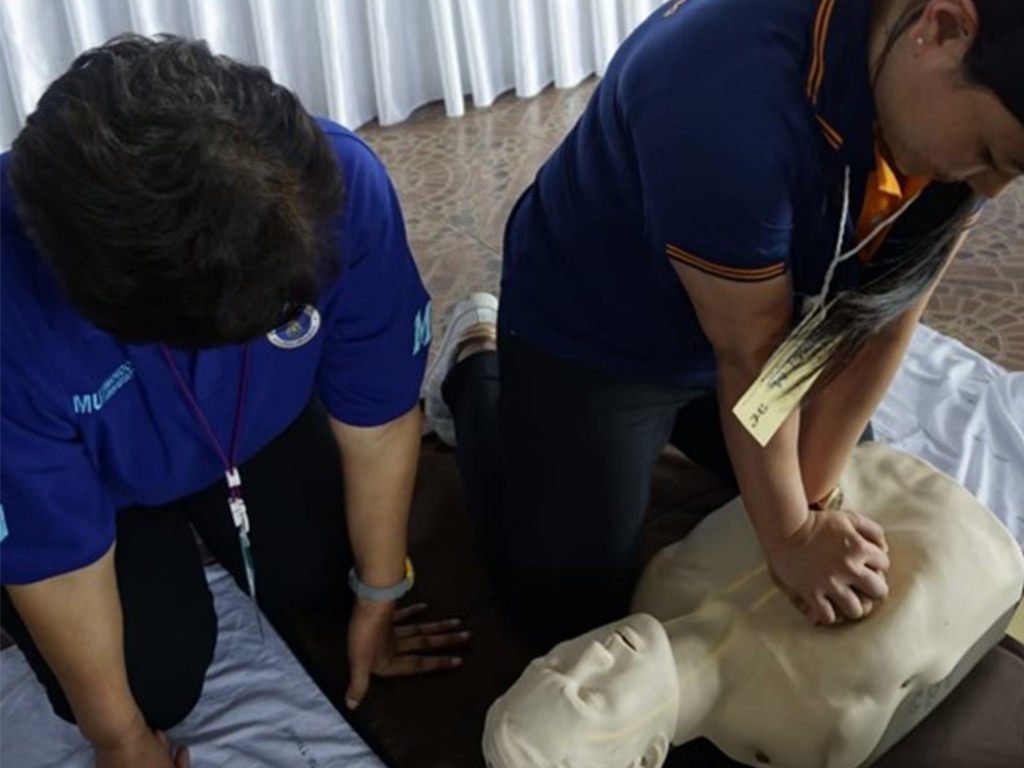
Overview
The MNS program in psychiatric and mental health nursing offers students a combination of theoretical foundations and clinical experience. The MNS program in psychiatric and mental health nursing requires at least 36 credits consisting of 15 credits of core courses, 6 credits for clinical experience, 3 credits for elective courses, and 12 credits of thesis paper. The MNS in psychiatric and mental health nursing includes caring for people with mental health problems and psychiatric patients in children and adolescents or adults and the elderly and all stages of illness, both individual and group, by integrating knowledge about biological bases of human behavior, psychopharmacology, mental disorder, nursing science, and related science.
The program provides two practicum courses. The clinical placements are in a psychiatric hospital (Practicum I) and community settings (Practicum II). Students are trained in real-life situations both in hospitals and in the community. Students provide direct care of individuals of interest by integrating empirical evidence, research findings, knowledge of nursing theory and other theories, collaborating with healthcare providers, and recognizing the appropriateness of socio-culture, law, ethics, and professional ethics.
The 6 credits for the two practicum courses included 270 hours, 256 hours for direct clinical experience, and 14 hours for skill training in therapeutic communication and conducting group therapy with standardized patients prior to practicing in clinical settings. In Practicum I RAMH 669 Advanced Practicum in Psychiatric and Mental Health Nursing I focus on taking care of individuals with psychiatric and mental health problems, therapeutic nurse-patient relationship, therapeutic communication, assessment of problems and causes of mental disorders, nursing intervention, conducting group psychotherapy, and outcome evaluation. In Practicum II RAMH 670 Advanced Practicum in Psychiatric and Mental Health Nursing II focuses on mental health promotion, prevention, intervention, and rehabilitation in individuals, families, and community; continuing care when patients return home and live in the community. Students are assigned to care for psychiatric patients and their families at home. Patients are assessed for problems requiring care; then, students provide nursing care using evidence-based practice. Students also work together as a group to implement a project that promotes or prevents mental health problems in the community. Both two clinical courses build up the 9 competencies of clinical nurse specialists that require by the Thailand Nursing and Midwifery Council.
The end program student learning outcomes of all program options are as follows:
1. Demonstrate professional and ethical behaviors consistent with practice, research, and academic work standards.
2. Utilize nursing knowledge, related disciplines, and evidence-based concepts to conduct research and provide holistic nursing care.
3. Have the ability to conduct research to improve the quality of nursing in the field of study and disseminate works in accordance with a standard.
4. Deliver patient-centered care that is safe, effective, and competent, while employing clinical decision-making skills in a culturally sensitive manner.
5. Create collaborative relationships with interdisciplinary team members, the patient, and the family to promote quality improvement initiatives for health outcomes.
6. Utilize innovative technology and information to communicate and facilitate decision-making to enhance nursing quality and risk management.
The role- specific outcomes of MNS in Psychiatric and Mental Health Nursing are as follows:
7. Develop the role-specific as a clinical nurse specialist with the following competencies:
a) Able to develop, manage, and supervise target groups or specific groups, or particular disease groups (Care management)
b) Able to care for target groups or particular disease groups with mental health or complex psychiatric problems (Direct care)
c) Able to collaborate with others to effectively plan and provide care
d) Able to empower, disseminate knowledge, and coach patients and their families for necessary skills to take care of themselves
e) Consultation for patients, families, and nurse team
f) Able to provide ethical reasoning and decision making
g) Able to utilize empirical evidence (evidence-based practice), and research findings in nursing practice


